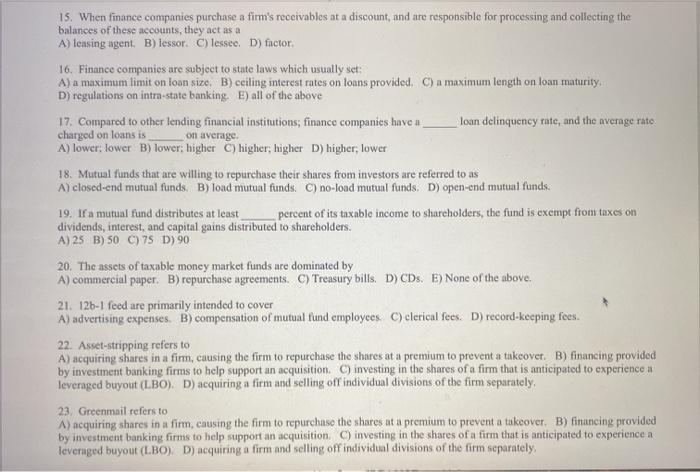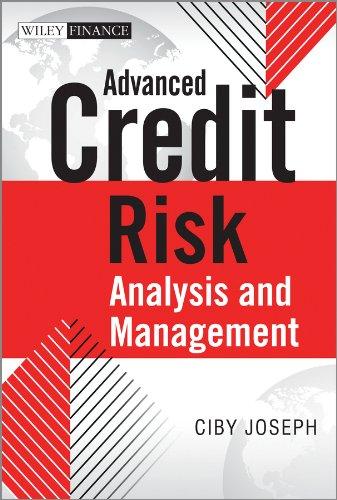15. When finance companies purchase a firm's receivables at a discount, and are responsible for processing and collecting the balances of these accounts, they act as a A) leasing agent B) lessor. C) lessee. D) factor 16. Finance companies are subject to state laws which usually set: A) a maximum limit on loan size. B) ceiling interest rates on loans provided. C) a maximum length on loan maturity D) regulations on intra-state banking. E) all of the above 17. Compared to other lending financial institutions; finance companies have a loan delinquency rate, and the nverage rate charged on loans is on average A) lower: lower B) lower; higher ) higher, higher D) higher, lower 18. Mutual funds that are willing to repurchase their shares from investors are referred to as A) closed-end mutual funds. B) load mutual funds. C) no-load mutual funds. D) open-end mutual funds. 19. If a mutual fund distributes at least percent of its taxable income to shareholders, the fund is exempt from taxes on dividends, interest, and capital gains distributed to shareholders. A) 25 B) 50 C) 75 D) 90 20. The assets of taxable money market funds are dominated by A) commercial paper. B) repurchase agreements. C) Treasury bills. D) CDs. E) None of the above. 21. 125-1 feed are primarily intended to cover A) advertising expenses. B) compensation of mutual fund employees C) clerical fees. D) record-keeping fees. 22. Asset-stripping refers to A) acquiring shares in a fimm, causing the firm to repurchase the shares at a premium to prevent a takeover. B) financing provided by investment banking firms to help support an acquisition. C) investing in the shares of a firm that is anticipated to experience a leveraged buyout (LBO). D) acquiring a firm and selling off individual divisions of the firm separately, 23. Greenmail refers to A) acquiring shares in a firm, causing the firm to repurchase the shares at a premium to prevent a takeover. B) financing provided by investment banking firms to help support an acquisition ) investing in the shares of a firm that is anticipated to experience a leveraged buyout (LBO). D) acquiring a firm and selling off individual divisions of the firm separately







